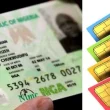Yesterday, the Senate Committee on Judiciary, Human Rights and Legal Matters held a public hearing for the proposed Protection from Internet Falsehood and Manipulations Bill, 2019 (popularly referred to as the Social Media Bill).
The hearing saw the attendance of representatives of civil society groups, government/private institutions and members of the media asking the Senate to drop further consideration of the bill.


The social media bill was sponsored by Senator Mohammed Sani Musa, and it advocates the restructuring of the country’s internet laws to curtail fake news and hate speech.
Since members of society have condemned the bill as it threatened internet freedoms in the country, a public hearing was needed to get the public’s view about it.
Of the 62 institutions and persons that submitted a memorandum/spoke at the hearing, only 2 groups – Nigerian Army and the Supreme Council of Islamic Affairs, joined the Senator to support the bill.
Every other institution including the Nigerian Communications Commission (NCC) and Broadcasting Organisations of Nigeria (BON), all agreed that the bill should not be passed into law as it is now.
The main notion of the social media bill is to fight misinformation and fake news which has become like the order of the day on social media. As such the bill moves to provide a legal framework to guide the space in Nigeria. According to the bill’s backers, this will enhance security, peace and unity in the country.
Individuals who go against the bill could pay a fine of up to N300,000, face 3 years imprisonment, or both. Companies found guilty may also pay up to N10 million in fines.
But critics of the bill have argued that it could gag free speech as provisions in the Bill could be used to violate citizen’s human rights.
Africa, free speech and internet restriction
Restricting internet usage is not novel to the African continent. Several African countries like Chad, Cameroon, Ethiopia, Gambia and Uganda have shut down mobile networks during politically-sensitive periods or even for other reasons.
Other countries like Kenya have passed Computer Misuse and Cybercrimes Bill to police social media activity, while Uganda and Tanzania have gone ahead to tax users.
Other critics of the bill like the BON and NCC even find the bill unnecessary as most parts are said to be covered in previous legislations like the Cyber Crimes Act of 2015 and the Penal Code. While the other parts might be difficult to implement since many of these platforms covered are not even hosted in Nigeria.
As such the NCC recommended that the Bill goes through a “complete redraft to ensure it aligns with existing laws.”
Now that the people’s opinion of the social media bill has been heard, it remains in the purview of the committee to either bounce the bill or recommend it for passage to the Senate. As such Nigerians can only wait and see what their legislators do.






